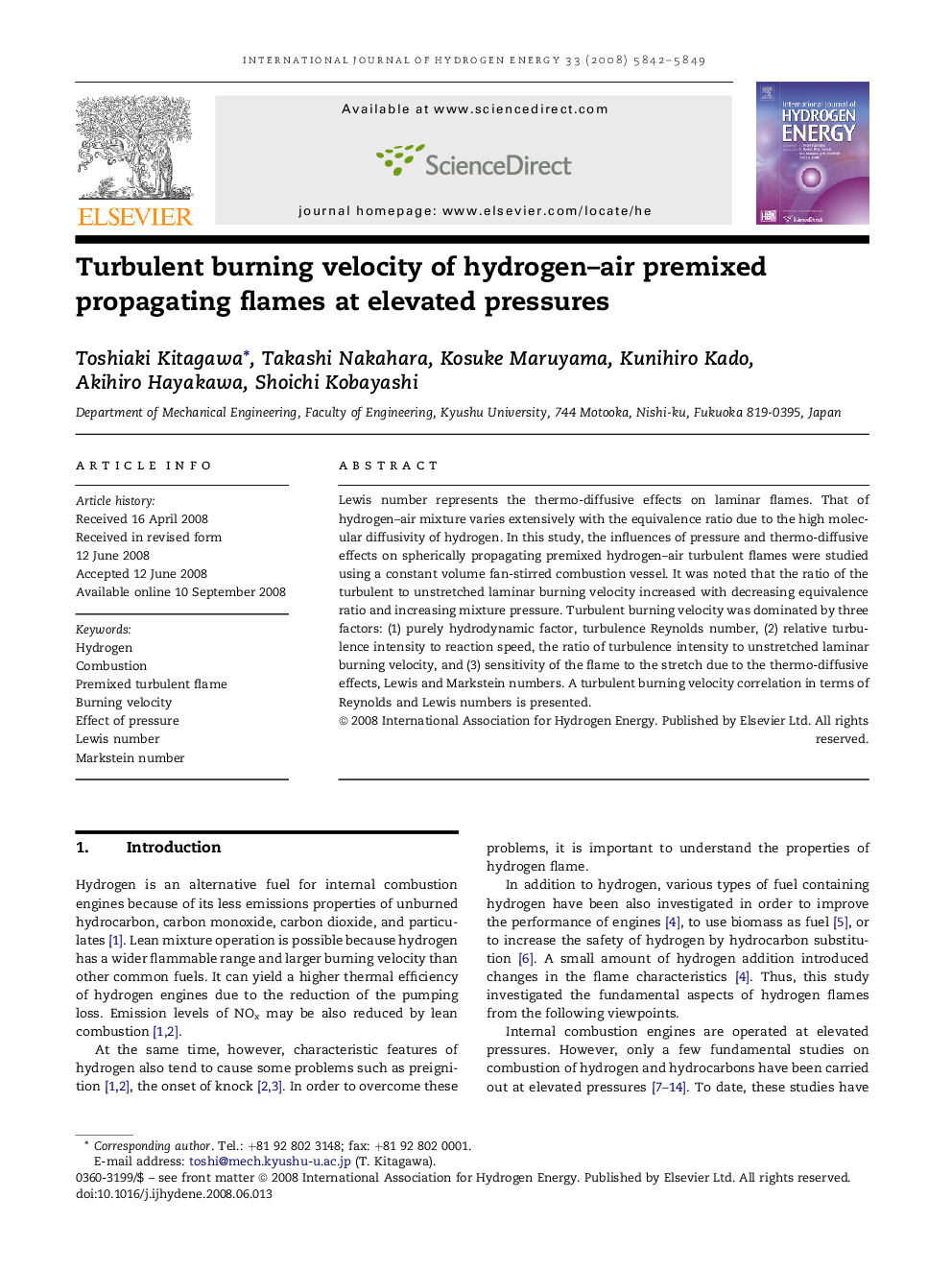| Article ID | Journal | Published Year | Pages | File Type |
|---|---|---|---|---|
| 1278528 | International Journal of Hydrogen Energy | 2008 | 8 Pages |
Lewis number represents the thermo-diffusive effects on laminar flames. That of hydrogen–air mixture varies extensively with the equivalence ratio due to the high molecular diffusivity of hydrogen. In this study, the influences of pressure and thermo-diffusive effects on spherically propagating premixed hydrogen–air turbulent flames were studied using a constant volume fan-stirred combustion vessel. It was noted that the ratio of the turbulent to unstretched laminar burning velocity increased with decreasing equivalence ratio and increasing mixture pressure. Turbulent burning velocity was dominated by three factors: (1) purely hydrodynamic factor, turbulence Reynolds number, (2) relative turbulence intensity to reaction speed, the ratio of turbulence intensity to unstretched laminar burning velocity, and (3) sensitivity of the flame to the stretch due to the thermo-diffusive effects, Lewis and Markstein numbers. A turbulent burning velocity correlation in terms of Reynolds and Lewis numbers is presented.
